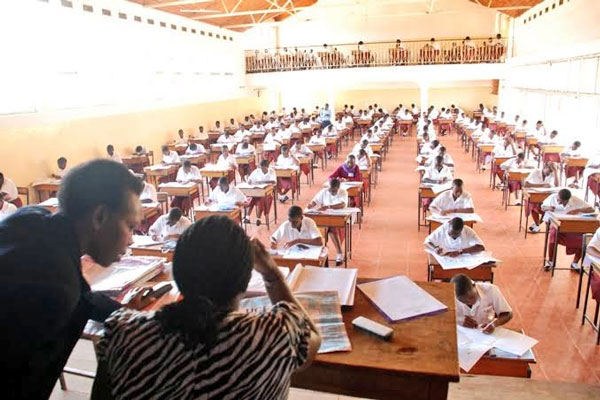
Kampala, Uganda | THE INDEPENDENT | A total of 14,879 candidates who sat their Uganda Certificate of Education (UCE) examinations last year did not meet the minimum grade requirements, and have been advised to resit the examination.
Given the fact that 2023 marked the final year of implementing the old curriculum, candidates receiving their results have been recommended to retake the examination for advancement to the next academic level.
Professor Celestino Obua, Chairperson of the Uganda Examinations Board (UNEB), highlighted that this group will be provided a one-time opportunity to resit the examination under the old curriculum.
Professor Obua added that the same treatment will be given to candidates who did not register for the 2023 examination, those who registered but did not attend. Furthermore, adult learners studying independently will also be afforded a one-time chance for examination.
However, he added that the chance to sit the one-off examination will not be availed to candidates who sat their Primary Leaving Examination – PLE after 2019.
This information reiterated what Joyce Kaduccu, state minister in charge of primary education, communicated while addressing Parliament on Wednesday evening. In 2019, the Ministry introduced the new Competence-Based Curriculum (CBC).
In contrast to the phased-out curriculum, where learners take a single national examination at the conclusion of the cycle, the CBC employs a distinct assessment model. This model includes class-based continuous assessment, accounting for 20 percent, and a final national assessment, which carries 80 percent of the overall evaluation.
As per the guidelines, a candidate cannot register for the final assessment if no continuous assessment occurred from S.1 to S.4. This poses a significant challenge for learners who studied under the old curriculum, as they lack such assessment marks.
Janet Kataaha Museveni, the Education Minister, mentioned that those who are repeating will be given ample time to prepare before retaking the examination. Additionally, she directed the authorities to thoroughly examine the matter and develop a roadmap, which will be communicated to the public once it is ready.
Although the exact dates for the repetition of the examinations are not yet known, there is an understanding that the exams are likely to be scheduled around June/July this year, which is several months before the official 2024 UCE examination. This implies that repeaters have less than three months to prepare for the examination.
However, the proposition of offering a one-off chance to those who have studied under the old curriculum has sparked a debate. Some individuals argue that a one-off chance might disadvantage learners who may not be adequately prepared to retake the exam within the limited time frame.
The issue was discussed in Parliament on Wednesday, where some MPs expressed concerns about the fairness of the government’s approach. The matter pertaining to this category of learners emerged as an unforeseen transition question, prompting the Ministry to urgently seek a resolution this year.
UNEB was assigned the task of finding a solution, and it is reported that the board presented various options to top officials in the Ministry of Education. Ultimately, the option of a one-off examination was selected.
****
URN



